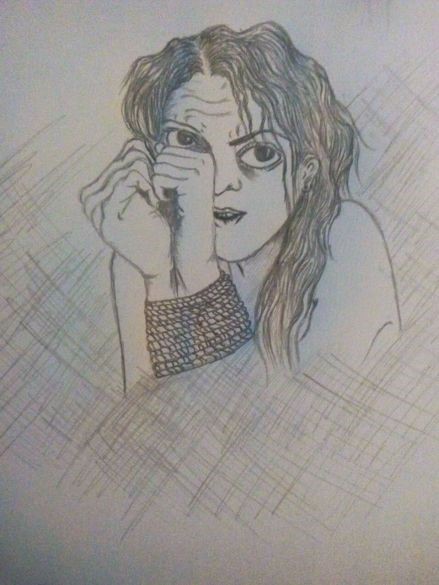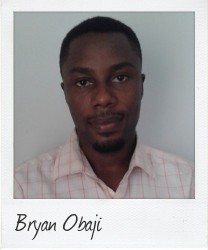“Victims of violence against women in Nigeria”
February 23If you allow people talk about how wonderful women are, they will talk without an end, writes Bryan Obaji, 27, a Commonwealth Correspondent from Calabar in Nigeria. At the same time, violence against women is endemic. He examines some causes and solutions.
Right from our own homes, our mothers are wonderful, our wives are God-sent, our daughters are very supportive and our sisters will defend us all the way through. All these attributes will make anyone and everyone want to have connections with women. Irrespective of our shortcomings as humans it is very important to note that all gender should be treated fairly without discrimination of any kind.
Yet violence against women is a problematic human rights violation that cuts across all ages, religion, and background of women and girls. It can happen anywhere: at work, school, church, on the street, or at home. Perpetrators can come from loved ones including husbands, guardians, friends and family members. Strangers are not left out in this violation.
Around the world are limitless cases of rape, physical and verbal abuse, genital mutilation, trafficking of women and girls, sexual harassment and many others. The physical and psychological effects of these actions do not deter the perpetrators. Their victims are often too scared to come out publicly for fear of victimisation and laws that do not favour them. The vulnerable ones in the society (women) should be protected against the vices of both the government and individuals.
In Nigeria, women’s right are largely trampled upon because of many factors. There is lack of faith in constituted authorities to look into cases of abuse. The judicial structure allows the presence of people other than the victims, witnesses and lawyers in court proceedings, which makes victims shy away for confidentiality reasons. The requirements to prove rape cases form another hurdle.
Domestic violence and spousal rape is seen as socially accepted, with some people bragging that their “disciplinary measure” has been effective, while others see this issue as a family affair. Women are forbidden from taking such acts to the public.
Even though the constitution spells out equality under the law and ensures the protection of fundamental human rights, traditional laws place women as subordinate to men.
Some cultures still practice the ancient believe that it is waste of resources to send a girl child to school, encouraging parents to give them out for marriage at a tender age, while other customs still insist on female genital mutilation, which exposes the child to various health hazards.
The penal code of northern Nigeria provides that an assault by a man on a woman is not an offence if they are married, if native law or custom recognises such ’correction’ as lawful, and if there is no grievous hurt. The question on the lips of everyone is “who defines ‘grievous hurt?’” If grievous hurt is measured on the physical, what happens to the psychological trauma it leaves on the victim? As experts have proven, violence can lead to post-traumatic stress disorder, depression and anxiety. It clearly shows that some traditional beliefs are backed by current laws.
On March 16 2016, the Nigerian senate rejected a bill sponsored by Senator Biodun Olujimi, seeking to empower women politically and economically as well as grant them equal opportunities with men in diverse human endeavors. It is shocking to see a bill that seeks to tackle domestic violence and underage marriage thrown out. As parliamentarians continue to wash their hands of this problem, the country’s women continue to bear the cross.
The government of Nigeria has made laudable efforts in its fight against gender inequality and in so doing, the National Gender Policy which aims at bringing an end to gender discrimination was introduced.
Bills have been proposed to end all forms of violence and recommendation for stiffer penalties have been placed before the legislative arm to be passed into law.
In 2016, the National Human Rights Commission signed a memo with the National Council of Women Societies (NCWS) which is designed to help end discrimination against women by ensuring that they are educated and empowered to claim their rights.
Organisations within the country are on red alert to end the scourge of violence against women. Women Arise for Change Initiative (WACI) encourages women to stand up against “misuse and abuse” by a male dominated society.
Founded by prominent Nigerian activist, Dr. Joe Odumakin, WACI works for women who are victims of discrimination and oppression, and advocates legal reforms to abrogate obnoxious and harmful practices targeted against women by religion, traditions and male prejudices.
The initiative also operates a Women’s Human Rights Clinic that provides practical support services to female victims of violence such as rape, incest, child prostitution, child pornography and indecent assault.
As one of the few organisations in Nigeria encouraging women to seek elective offices, WACI is currently seeking to “identify women with leadership potential, nurture their skills and encourage them to seek elective offices especially at the local levels,” as it puts it in its website.
“We will educate the women folk to believe in themselves and give support to women standing elections, including raising funds to prosecute their campaign.”
Despite being victims, activists say women can still be empowered to defend themselves, and the capacity of relevant authorities can be strengthened to better handle cases of violence against women.
It is important to create sensitisation and awareness programmes that will encourage women to report cases of abuse to authorities. Police officers should receive civic education and training on issues of domestic violence and its effects on victims. This will prepare them to handle such cases better.
Photo credit: Michaella Ezima
…………………………………………………………………………………………………………………
About me: I am Jetem Bryan Obaji, a trained accountant. Presently, I work for a not-for-profit organisation, sensitising the public on the need for basic education.
In the coming years I hope to channel my efforts and resources towards ensuring a better quality of life for people. Reading, writing and playing fun games are my interests.
…………………………………………………………………………………………………………………
Opinions expressed in this article are those of the author and do not necessarily represent the views of the Commonwealth Youth Programme. Articles are published in a spirit of dialogue, respect and understanding. If you disagree, why not submit a response?
To learn more about becoming a Commonwealth Correspondent please visit: http://www.yourcommonwealth.org/submit-articles/
…………………………………………………………………………………………………………………







